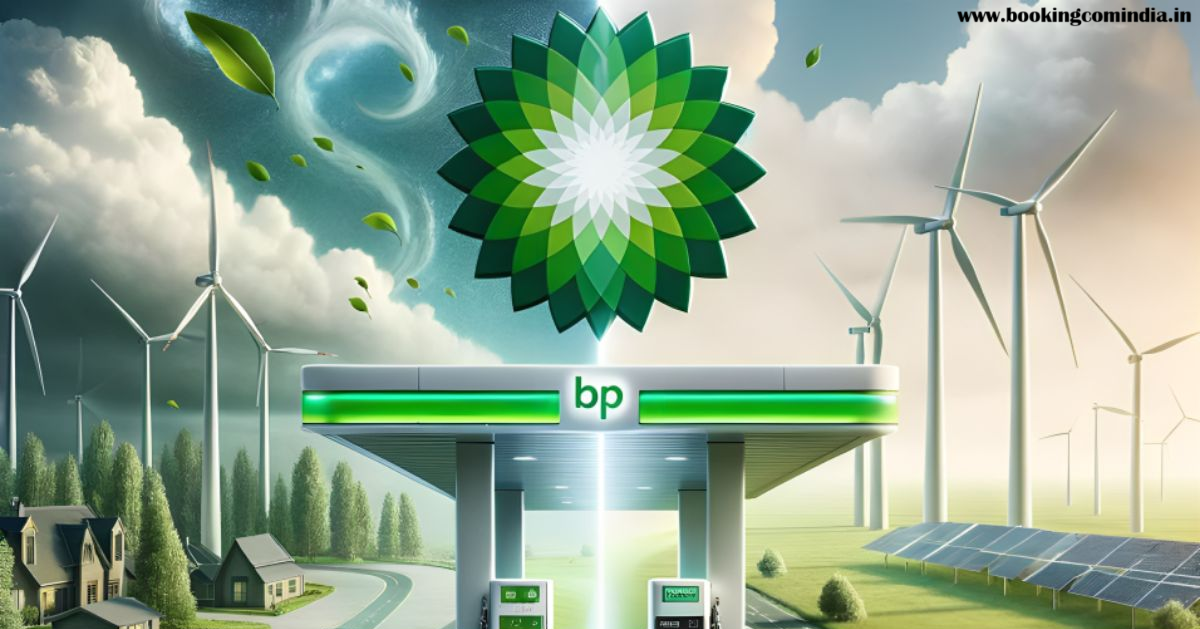The intersection of energy consumption, fuel efficiency, and climate goals has never been more critical. As the world grapples with the escalating threat of climate change, major energy companies like BP Groeit, Benzine, Climate Goals, Brandstof are under intense scrutiny. This guide delves into the intricate balance BP strives to achieve between economic growth, sustainable fuel practices, and its commitment to global climate objectives.
BP Groeit, Benzine, Climate Goals, Brandstof, Evolution in the Energy Sector
BP, one of the largest energy companies in the world, has undergone a significant transformation over the past few decades. Originally a conventional oil company, BP has redefined its identity in response to mounting environmental concerns and shifting market dynamics. The company’s growth strategy now encompasses a broader spectrum of energy solutions, including BP Groeit, Benzine, Climate Goals, Brandstof, renewable energy, natural gas, and innovative technologies aimed at reducing carbon emissions.
BP’s Shift Towards Renewable Energy
BP has pledged to become a net-zero company by 2050, a goal that reflects its commitment to sustainability. This shift is not merely a response to regulatory pressures but also a recognition of the changing energy landscape. Renewable energy, particularly wind and solar power, has become a cornerstone of BP’s long-term strategy. The company has made substantial investments in these areas, signaling a significant departure from its oil-centric past.
Fuel Efficiency: A Key Component of BP’s Strategy
Fuel efficiency is at the heart of BP Groeit, Benzine, Climate Goals, Brandstof strategy to meet its climate goals. The company has been actively working on developing and promoting fuel-efficient technologies that reduce carbon emissions while maintaining performance standards. This includes advancements in engine technology, the development of cleaner fuels, and initiatives to promote electric vehicles (EVs).
BP’s Role in Promoting Electric Vehicles
One of the most significant steps BP has taken towards achieving fuel efficiency and reducing carbon emissions is its investment in the electric vehicle market. BP has been expanding its network of EV charging stations across key markets, making it easier for consumers to switch to electric vehicles. The company’s commitment to this sector is a clear indication of its belief in the future of electric mobility as a vital component of a low-carbon economy.
See Also:
Best Private Cabin Cafes & Restaurants for Couples in Ahmedabad
Top Couple Friendly Hotels in Lucknow
List of Best Couple Friendly Hotels in Coimbatore
BP’s Contribution to Global Climate Goals
BP’s climate strategy is closely aligned with global efforts to combat climate change. The company has set ambitious targets to reduce its carbon footprint and is actively participating in international climate initiatives.
Aligning with the Paris Agreement
BP has explicitly stated its support for the Paris Agreement and its goals to limit global warming to well below 2°C. To achieve this, BP Groeit, Benzine, Climate Goals, Brandstof, is focusing on reducing its own emissions as well as helping customers lower their carbon impact. This involves a mix of energy efficiency measures, investment in low-carbon technologies, and carbon offset projects.
Carbon Capture and Storage (CCS) Initiatives
A critical element of BP’s climate strategy is its involvement in carbon capture and storage (CCS) projects. CCS technology is essential for mitigating emissions from fossil fuel usage, and BP Groeit, Benzine, Climate Goals, Brandstof, has been at the forefront of developing and implementing these technologies. By capturing and storing carbon emissions from industrial processes, BP is helping to reduce the overall carbon intensity of its operations.
Challenges and Criticisms
Despite BP’s efforts, the company faces significant challenges and criticism. Environmental groups and climate activists have often accused BP of not doing enough to transition away from fossil fuels. There is also skepticism about whether BP’s commitments are sufficient to meet the urgent demands of the climate crisis.
Balancing Economic Growth with Environmental Responsibility
One of the primary challenges BP faces is balancing its commitment to economic growth with its environmental responsibilities. As a major energy provider, BP is under constant pressure to deliver financial returns to its shareholders. This often means continuing to explore and develop fossil fuel resources, which can be at odds with its climate goals.
Public Perception and Trust Issues
Public perception of BP’s efforts is another significant challenge. The company’s history, particularly the 2010 Deepwater Horizon oil spill, has left a lasting impact on its reputation. BP’s current efforts to promote renewable energy and sustainability are often viewed with skepticism, and the company must work to rebuild trust with the public and other stakeholders.
The Future of BP in a Low-Carbon World
The future of BP Groeit, Benzine, Climate Goals, Brandstof, in a low-carbon world depends on its ability to navigate the complex landscape of energy transition. As the world moves towards cleaner energy sources, BP’s role will inevitably change. The company must continue to innovate and adapt to remain relevant in this new energy paradigm.
Investment in Innovation and Technology
To stay ahead, BP is investing heavily in innovation and technology. This includes exploring new energy storage solutions, hydrogen fuel, and other emerging technologies that could play a crucial role in the future energy mix. BP’s ability to lead in these areas will be a key determinant of its success in a low-carbon world.
See Also: Proxiyum Guide to Fast, Secure
Collaboration and Partnerships
BP recognizes that achieving its climate goals will require collaboration with governments, other companies, and civil society. The company is actively seeking partnerships to advance its sustainability agenda. By working together with various stakeholders, BP aims to accelerate the transition to a low-carbon economy.
Conclusion
BP’s journey towards sustainability is a complex and ongoing process. The company has made significant strides in reducing its carbon footprint and promoting renewable energy, but challenges remain. As BP continues to evolve, its ability to balance economic growth with environmental responsibility will be crucial. The world is watching, and the stakes have never been higher.










Leave a Reply